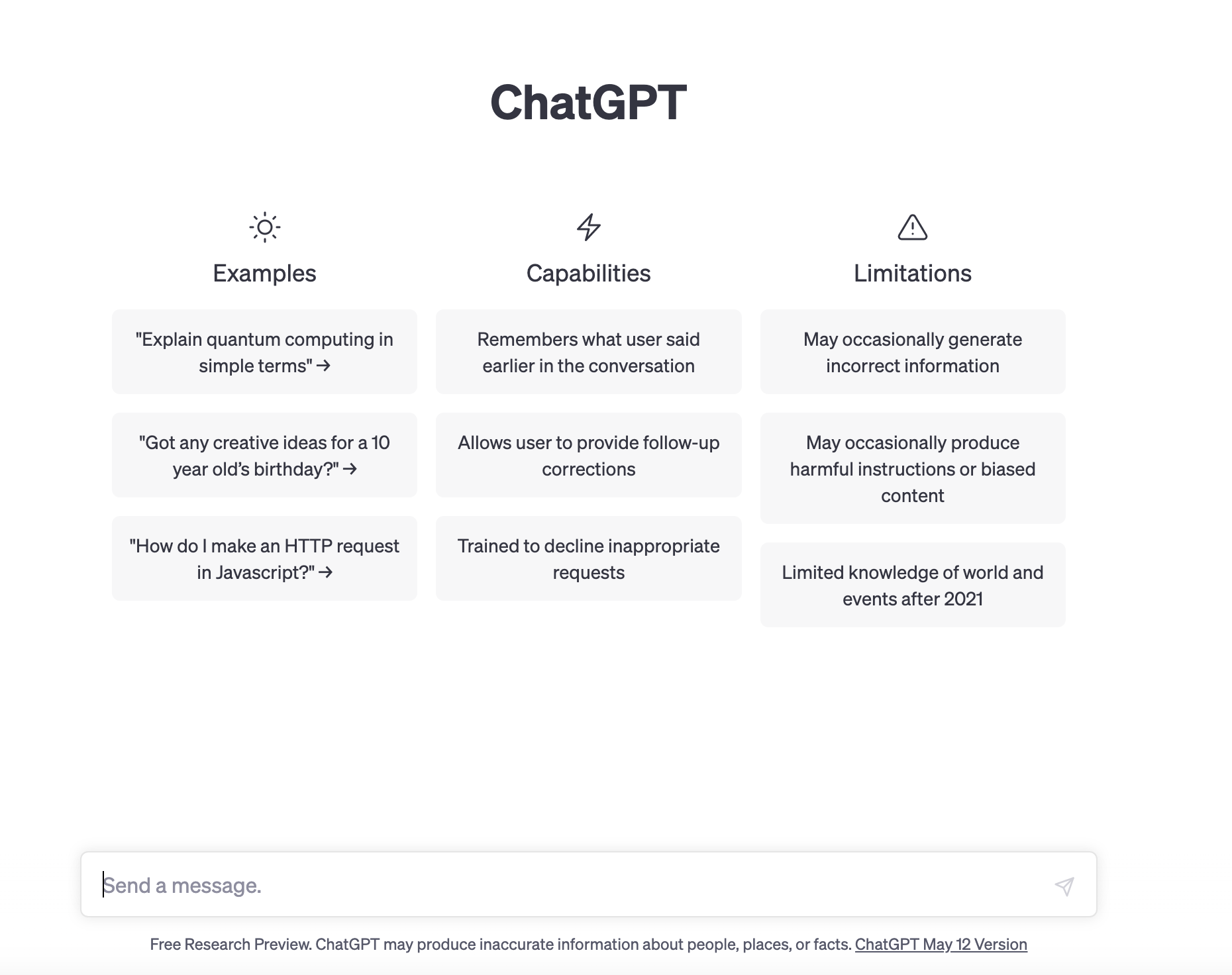Datamation content and product recommendations are
editorially independent. We may make money when you click on links
to our partners.
Learn More
ChatGPT-4, or Chat Generative Pre-trained Transformer Four, is the latest release of OpenAI’s popular Artificial Intelligence (AI) chatbot and language model. ChatGPT-4 can mimic human responses to user questions and interpret 26 languages, and users can add pictures, emojis, and other files into the platform to prompt the system for a response.
For those willing to pay, OpenAI makes the tool available on its website for a $20 monthly fee, which also includes priority access to new features as the provider releases them. But other providers offer free ChatGPT-4 access through their own products and services, such as Microsoft’s Bing search engine, for example.
While OpenAI will likely make it fully available to general users in the future, here’s a look in the meantime at how to access the features and functions of ChatGPT-4 for free as well as some of the benefits and disadvantages of using the chatbot technology.
Table Of Contents
- Advantages And Disadvantages Of ChatGPT-4
- How To Use ChatGPT-4 For Free
- Examples of Things ChatGPT-4 Does Well
- Examples of Things ChatGPT-4 Does Not Do Well
- Bottom Line: Using ChatGPT-4
Advantages and Disadvantages of ChatGPT-4
While ChatGPT-4 is a powerful tool that uses advanced technology, it’s still capable of producing factually inaccurate and misleading information. Users need to proceed with caution when relying on the chatbot for use cases where accuracy matters. Here are some of the advantages and disadvantages of using ChatGPT-4.
Advantages
- Availability: ChatGPT-4 is available 24/7 for users who need an immediate response.
- Inexpensive: Free access to the tool puts it within reach of anyone with an internet connection.
- Multilingual: Businesses and users all over the world can use ChatGPT due to its multilingual features.
Disadvantages
- Misinformation: While OpenAI has improved inaccuracy with the latest release, the nature of the Large Language Model (LLM) that powers the tool means that it is still “learning” with each use through self-analysis and self-correction, and the risk of misinformation or inaccuracy remains high.
- Bias: ChatGPT-4 learns from what users input and what data it is trained on. Because of this, the platform is biased toward those sources.
- No Emotional Intelligence: Unlike humans, ChatGPT-4 does not factor in emotion when giving advice—something users should keep in mind.
How To Use ChatGPT-4 For Free
How To Use ChatGPT-4 For Free With Bing
- ChatGPT-4 is only available on Bing when using the latest version of the Microsoft Edge browser. Check for updates before proceeding.
- On the Bing homepage, click on the “Chat” icon in the top right corner.
- Enter any text or input. Emojis, pictures and other media can also be added using the “Attachment” icon at the bottom right corner of the chat box.

How To Use ChatGPT-4 For Free With ForeFront AI
- ChatGPT-4 is available through the ForeFront AI website to registered users. Account registration is free.
- On the ForeFront AI website, sign in or create an account.
- Once logged in, click the GPT box in the top left corner, and select ChatGPT-4.
- A dropdown box lets users choose or create personas for the tool. The system defaults to “Helpful Assistant,” but other available options include personas in such categories as “Productivity,” “Wellness & Lifestyle,” “History,” “Celebrity,” “Star Wars,” and “Athlete,” among others. Note: These are not real people but personas designed to mimic experts in those subject areas.

4. Users are redirected to the chat page where they can ask questions or add attachments to interact with ChatGPT-4, which will respond as the chosen persona.

How To Use ChatGPT For Free Through OpenAI
- OpenAI currently only allows free use of an earlier release of the ChatGPT tool, version 3.5, to registered users through its website.
- Sign in or create an account on the OpenAI site.
- Click “New Chat” at the top left corner of the page to see examples of how to use the tool as well as its capabilities and limitations.

4. Type a question or prompt into the chat box and press enter to start using ChatGPT.
Examples of Things ChatGPT-4 Does Well
OpenAI designed ChatGPT-4 to be reliable, accurate and capable of handling tasks to benefit users. But it is better at some tasks than others, and before relying on ChatGPT-4, a user or business should know when to use it and when to not.
Code and Provide Coding Assistance
ChatGPT-4 can help users learn to code by automating simple tasks such as file input and output (I/O) operations and database activities. When asked to teach coding, ChatGPT-4 offers advice on how to start, which is especially useful for non-experts wanting to learn simple techniques.
Support Students and Teachers
ChatGPT-4 can help teachers, professors and students grow their knowledge as well as create study guides, quizzes, tests and lesson plans. From translating languages to answering specific questions, ChatGPT-4 can give more access to educators and students. With the new ability to upload files or pictures to ChatGPT-4, it can also grade simple tests, correct errors and provide feedback to help students better understand what they are learning.
Serve Customers
ChatGPT-4 can handle customer questions and provide assistance across various industries, preventing time wasted on tedious customer service calls and letting employees focus on more difficult tasks. ChatGPT-4 can answer frequently asked questions, provide troubleshooting guidance, and offer general support.
Generate Content
ChatGPT-4 can generate many different types of creative content, including blog posts, social media updates, product descriptions and song lyrics. It can generate content based on image prompts and up to 25,000 words of text, assisting content creators by offering ideas, creating drafts and editing some writing.
Make Personal Recommendations
ChatGPT-4 can find personalized recommendations and recommend movies or other media. Companies can use Machine Learning (ML) and AI to find the right audience for their advertisements and find new users that might be interested.
Examples of Things ChatGPT-4 Does Not do Well
Whether due to its inaccuracy, inability to contextualize information, or other flaws, ChatGPT-4 is not a reliable source of assistance when it comes to certain tasks. Here are a few to help provide context around when an AI chatbot can be helpful and when it might be better to find another solution.
Provide Personalized or Professional Advice
ChatGPT-4 should not be trusted to offer personalized advice on legal, financial, medical or other matters as a replacement for certified professionals. Consult with a qualified expert instead.
Protect Privacy
ChatGPT-4 learns from the people who use it, and it may accidentally share other users’ chat histories. This is a privacy concern for any company.
ChatGPT-4 has had many privacy issues, including Samsung’s data leak. Some countries have banned ChatGPT-4 to protect citizens from any data leaks that might occur. Personal and business data should never be shared with ChatGPT-4.
Tell Truth from Fiction
Because of how the LLM works, by trying to understand a user’s prompt and generating strings of words that complete it based on the information upon which it was trained, ChatGPT-4 may provide inaccurate information. OpenAI advises users that the tool “sometimes writes plausible-sounding but incorrect or nonsensical answers,” and it should not be relied upon to provide accurate information unchecked.
Bottom Line: Using ChatGPT-4
ChatGPT has become one of the most well-known AI tools currently accessible for public use, and the latest release is a more efficient, accurate chatbot than any prior versions. OpenAI calls ChatGPT-4 its “most advanced system, producing safer and more useful responses.” Free or inexpensive access to ChatGPT-4 gives more users the ability to benefit from the product for a wide range of uses. While it is easy to use, it is still better at some things than others and users need to remain aware of its limitations around accuracy, reliability and privacy.













